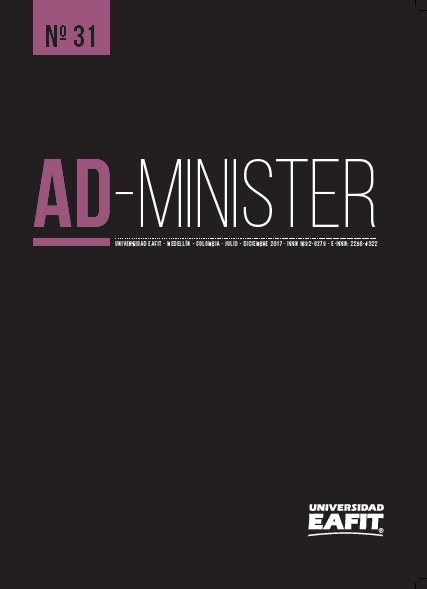¿Pagar menos o pagar lo Justo? Un análisis de las estrategias de precios
Main Article Content
Keywords
Precios Participativos, Precios participativos, Aprobación Social, experimentos, Paga lo que tú quieras, justicia., Experimentos, Justicia
Resumen
Con la finalidad de diferenciarse, las empresas buscan alternativas que les permitan destacar sobre la competencia. Las estrategias de precios participativos, en las que los consumidores tienen el control sobre los precios son una alternativa. Sin embargo, bajo este tipo de estrategias los oferentes corren el riesgo de que los consumidores incurran en comportamientos oportunistas y decidan pagar cero. El objetivo de este trabajo fue analizar los efectos de la aprobación social (el deseo de ser bien vistos por los demás), sobre las disposiciones de pago voluntario de los individuos y la relación entre las estrategias de precios participativos y la percepción de justicia. Para lograrlo, se llevó a cabo un experimento de campo (diferencia de medias) con 49 participantes. Los resultados no ofrecen evidencia que soporte la idea de que la aprobación social aumenta las disposiciones de pago. En cambio, se ofrece evidencia de los efectos de esta esta estrategia sobre la percepción de justicia.
Descargas
Referencias
Andreoni, J., & Petrie, R. (2004). Public goods experiments without confidentiality: A glimpse into fund-raising. Journal of Public Economics, 88(7-8), 1605-1623. DOI: 10.1016/S0047-2727(03)00040-9
Ariely, D., Bracha, A., & Meier, S. (2009). Doing good or doing well? Image motivation and monetary incentives in behaving prosocially. American Economic Review, 99(1), 544-555. URL: http://www.jstor.org/stable/29730196
Calder, B. J., Phillips, L. W., & Tybout, A.M. (1981). Designing research for application. Journal of Consumer Research, 8(2), 197-207. URL: http://www.jstor.org/stable/2488831
Camerer, C. F. (2003). Behavioral game theory: Experiments in strategic interaction. Princeton, NJ: Princeton University Press.
Dana, J., Cain D. M., & Dawes R. M. (2006). What you don’t know won´t hurt me: Costly (but quiet) exit in dictator games. Organizational Behavior and Human Decision Processes, 100(2), 193-201. DOI: 10.1016/j.obhdp.2005.10.001
Henrich, J., Boyd, R., Bowles, S., Camerer, C., Gintis, H., McElreath, R., & Fehr, E. (2001). In search of homo economicus: Behavioral experiments in 15 small scale societies. American Economic Review, 91(2), 73-79. URL: http://www.jstor.org/stable/2677736
Jang, H., & Chu, W. (2012). Are consumers acting fairly toward companies? An examination of pay-what-you-want pricing. Journal of Macromarketing, 32(4), 348-360. DOI: 10.1177/0276146712448193
Kahneman, D. A., Knetsch, J. L., & Thaler, R. H. (1986a). Fairness as a constraint on profit seeking: Entitlements in the market. American Economic Review, 76(4), 728-741. URL: http://www.jstor.org/stable/1806070
Kahneman, D. A., Knetsch, J. L., & Thaler, R. H. (1986b). Fairness and the assumptions of economics. Journal of Business, 59(2), 285-300. DOI: 10.1086/296367
Kim, J.-Y., Natter, M., & Spann, M. (2009). Pay what you want: A new participative pricing mechanism. Journal of Marketing, 73(1), 44-58. DOI: 10.1509/jmkg.73.1.44
Kim, J.-Y., Natter, M., & Spann, M. (2014). Sampling, discounts or pay-what-you-want: Two field experiments. International Journal of Research in Marketing, 31(3), 327-334. DOI: 10.1016/j.ijresmar.2014.03.005
Ledyard, J. (1995). Public goods: A survey of experimental research. En J. Kagel &A. Roth (Eds.), Handbook of experimental economics (pp. 111-194). Princeton, NJ: Princeton University Press.
Loureiroa, M. L., & Lotade, J. (2005). Do fair trade and eco-labels in coffee wake up the consumer conscience. Ecological Economics, 53(1), 129-138. DOI: 10.1016/j.ecolecon.2004.11.002
Meier, S. (2007). A survey of economic theories and field evidence on pro-social behavior. En B. S. Frey & A. Stutzer (Eds), Economics and psychology: A promising new cross-disciplinary field (pp. 51-88). Cambridge, MA: MIT Press.
Mueller, D. C. (2003). Public choice III. Cambridge, MA: Cambridge University Press.
Okun, A. M. (1981). Prices and quantities: A macroeconomic analysis. Washington, DC: The Brookings Institution.
Osterloh, M., Rota, S., & Kuster B. (2003). Open source software production: Climbing on the shoulders of giants. Documento de trabajo, Institute for Research in Business Administration, University of Zurich. Recuperado en diciembre de 2013 de http://citeseerx.ist.psu.edu/viewdoc/download?doi=10.1.1.12.3183&rep=rep1&type=pdf
Rege, M., & Telle, K. (2004). The impact of social approval and framing on cooperation in public good situations. Journal of Public Economics, 88(7-8), 1625-1644. DOI: 10.1016/S0047-2727(03)00021-5
Riener, G., & Traxler, C. (2012). Norms, moods, and free luch: Longitudinal evidence on payments from a pay-what-you-want restaurant. The Journal of Socio-Economics, 41(4), 476-483. DOI: 10.1016/j.socec.2011.07.003
Soetevent, A. (2005). Anonymity in giving in a natural context-An economic field experiment in 30 churches. Journal of Public Economics, 89(11-12), 2301-2323. DOI: 10.1016/j.jpubeco.2004.11.002
Solow, R. M. (1980). On theories of unemployment. American Economic Review, 70(1), 1-11. URL: http://www.jstor.org/stable/1814733
Whalen, J., Pitts, R. E., and Wong, J. K. (1991). Exploring the structure of ethical attributions as a component of the consumer decision model: The vicarious versus personal perspective. Journal of Business Ethics, 10(4), 285-293. URL: http://www.jstor.org/stable/25058231

